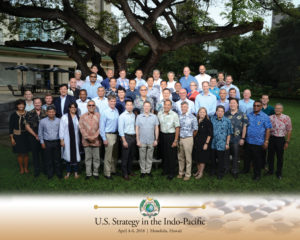
Thirty seven defense, diplomatic, and national security officials from 24 governments participated in the “U.S. Strategy in the Indo-Pacific” workshop conducted at the Daniel K. Inouye Asia-Pacific Center for Security Studies.
Discussing the principles for a free and open Indo-Pacific region formed the basis of a high-level workshop on “U.S. Strategy in the Indo-Pacific.” The workshop provided a platform for informal discussion between senior leaders in the region and senior U.S. administration officials involved in developing the Indo-Pacific strategy, which complements the U.S. National Security Strategy and the U.S. National Defense Strategy.
The two and a half-day workshop was designed in concert with the Office of the Assistant Secretary of Defense for Asian and Pacific Security Affairs and held at the Daniel K. Inouye Asia-Pacific Center for Security Studies in Hawaii, April 4-6. It brought together 37 participants from 24 governments. International participants included defense, foreign affairs and national security agency officials at the ministerial, cabinet secretary and undersecretary level. U.S. participants were from the National Security Council, Department of Defense, Department of State, and the U.S. Pacific Command.
Under Secretary of Defense (Policy) John Rood provided opening comments from Washington, D.C. and emphasized the desire to uphold rules based on international order.
According to workshop academic lead, Dr. Lori Forman, “The goal of regional cooperation based on a common set of principles requires participants to not only hear from speakers, but to also engage with each other. Our workshops are uniquely suited to facilitate this essential discussion in an atmosphere of trust and candor. ”
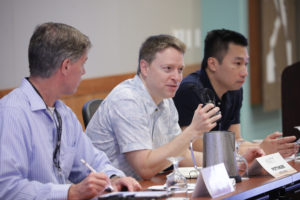
Senior U.S. speakers included (l-r): Dr. Joseph Felter, Deputy Assistant Secretary of Defense for South and Southeast Asia; Matt Pottinger, Deputy Assistant to the President and Senior Director for Asian Affairs of National Security Council; and, Alex Wong, Deputy Assistant Secretary, Bureau of East Asian and Pacific Affairs of the Department of State.
Other senior U.S. speakers included Matt Pottinger, Deputy Assistant to the President and Senior Director for Asian Affairs of National Security Council; Alex Wong, Deputy Assistant Secretary, Bureau of East Asian and Pacific Affairs of the Department of State; and, Dr. Joseph Felter, Deputy Assistant Secretary of Defense for South and Southeast Asia.
Pottinger shared the U.S. vision for the region with a desire to see “countries upholding the sanctity of sovereignty, respect for individual rights, and the rule of law.”
Deputy Assistant Secretary Alex Wong reiterated the U.S.’s commitment in the region with “five treaty allies and strong military partnerships in the region, the construct is unlike any other in the history of the world. We give more aid and direct foreign investment in the Indo-Pacific than any other nation; we are the number one trading partner, and we are the number one economic partner.”
Deputy Assistant Secretary of Defense for South and Southeast Asia, Dr. Joseph Felter, reiterated the goal the “strengthen alliances and attract new partners.”
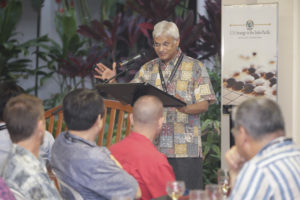
Dr. Ashley Tellis, Tata Chair for Strategic Affairs and Senior Fellow from the Carnegie Endowment for International Peace, launched the workshop with remarks providing the historical context of U.S. engagement in the Indo-Pacific.
According to DKI APCSS Director retired Rear Admiral Pete Gumataotao, “This was the first opportunity for senior U.S. officials from NSC, DOS, and DOD to elaborate on the Indo-Pacific strategy with regional leaders and solicit their comments and reactions on content and implementation.”
The second day of the workshop included a rich discussion on the principles of a free and open Indo-Pacific. Participants provided valuable feedback on this approach and indicated key principles which align with their countries’ values.
The last workshop that addressed U.S. strategy in 2012 was focused on the rebalance strategy, which was announced earlier that year. Forman served as the lead for that workshop and credits successful outcomes this year to a strong team and building on the lessons learned from the 2012 effort. A key similarity this year was using sub regional and functional breakout groups to gather insights from different perspectives.
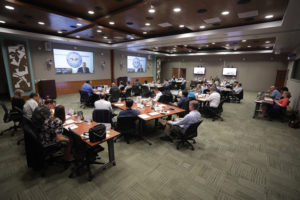
Under Secretary of Defense (Policy) John Rood provided opening comments from Washington, D.C. and emphasized the desire to uphold rules based on international order.
The Daniel K. Inouye Asia-Pacific Center for Security Studies is a Department of Defense institute that addresses regional and global security issues. Military and civilian representatives, most from the Asia-Pacific nations and the United States, participate in a comprehensive program of executive education, professional exchanges and outreach events, both in Hawaii and throughout the Asia-Pacific region.
The Center supports U.S. Pacific Command by developing and sustaining relationships among security practitioners and national security establishments throughout the region. DKI APCSS’ mission is to build capacities and communities of interest by educating, connecting and empowering security practitioners to advance Asia-Pacific security. It is one of the Department of Defense’s five regional security studies centers.
Since opening in 1995, more than 11,000 alumni representing over 135 countries and territories have attended DKI APCSS courses and workshops.
Related links:


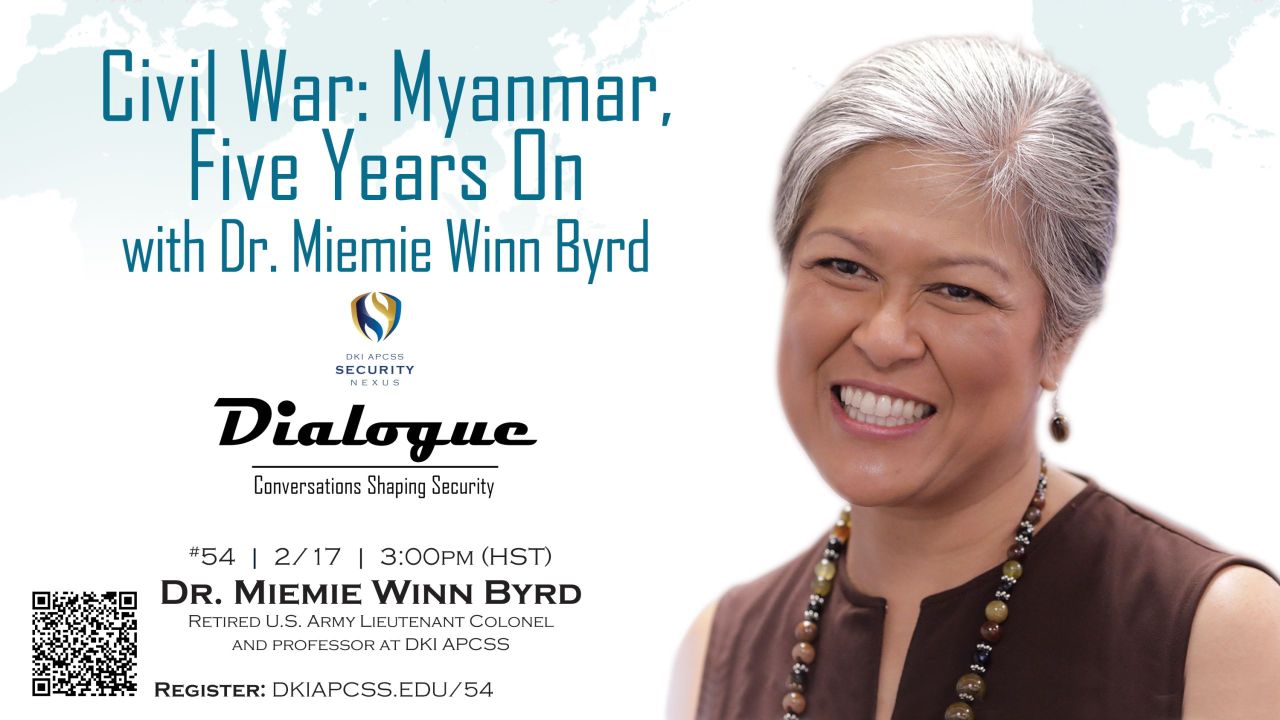
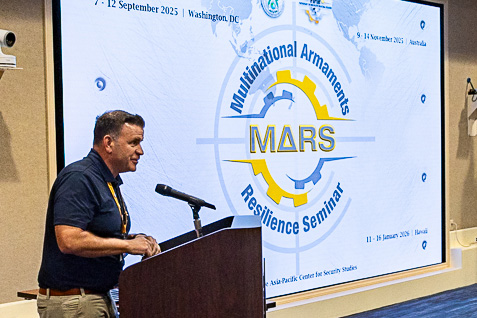
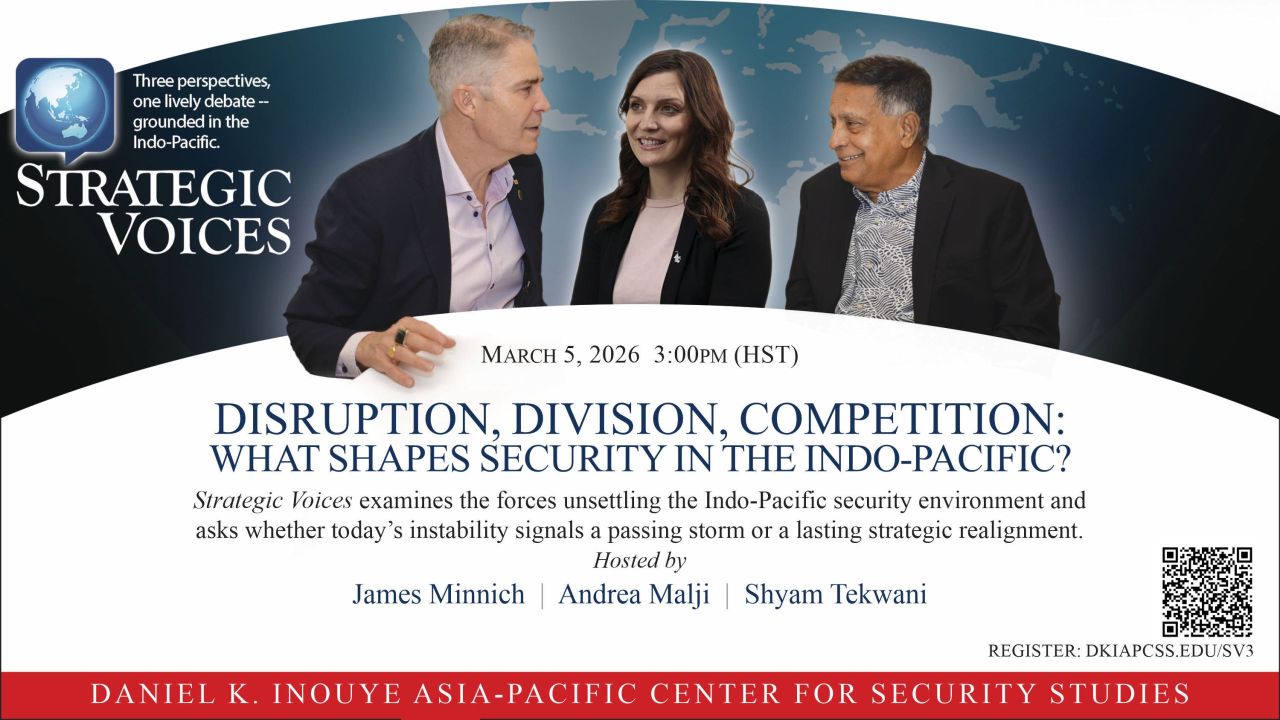




Leave A Comment